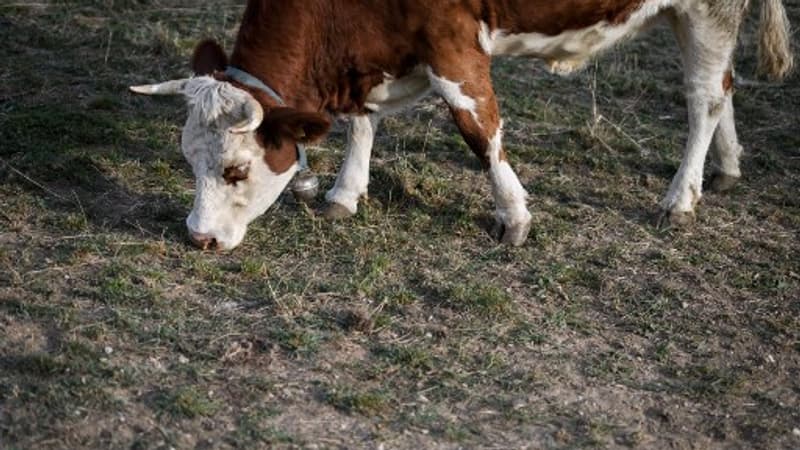The first cases in France of epizootic hemorrhagic disease (EMD), which affects deer and cattle, were detected on farms in the Hautes-Pyrénées and the Pyrénées-Atlantiques, the Ministry of Agriculture announced this Thursday.
The ministry specifies in its statement that three farms are affected in these two southwestern departments and that “the ministry’s services, in collaboration with professional organizations, adopt measures to manage this disease.”
Locally prohibited export
The Departmental Directorate for Population Protection (DDPP) has prohibited the export of live cattle within a radius of 150 kilometers around the two affected farms in the Pyrenees-Atlantiques, declared the Basque union ELB.
A similar measure was adopted for livestock farming in the Hautes-Pyrénées, which therefore affects five departments in total (Pyrénées-Atlantiques, Hautes-Pyrénées, Gers, Landes and Haute-Garonne). According to the ELB union, exports to Spain and Italy for fattening are also “blocked”, but not for the immediate slaughter of cattle.
Biting mosquitoes involved
Discovered in the United States in 1995, MHE primarily affects deer and cattle and is transmitted through biting mosquitoes. It causes fever, weight loss, oral lesions, breathing difficulties in animals and “generates only very low mortality,” the ministry says.
In Hasparren and Etchebar, two municipalities in the Basque Country affected by the disease,“They were problems with bleeding and cyanosis of the mucous membranes.“, explains Alain Mesplède, director of the DDPP of the Pyrénées-Atlantiques, to France bleu.
This viral disease was detected for the first time in Europe in the fall of 2022, in Sardinia and then in Sicily, the French National Health Security Agency (ANSES) declared in May. Its arrival in Europe is, according to ANSES, a consequence of climate change, which allows mosquito vectors to survive.
The epizootic hemorrhagic disease is not transmissible to humans and there is still no vaccine available against the type of virus detected in Europe.
Source: BFM TV


